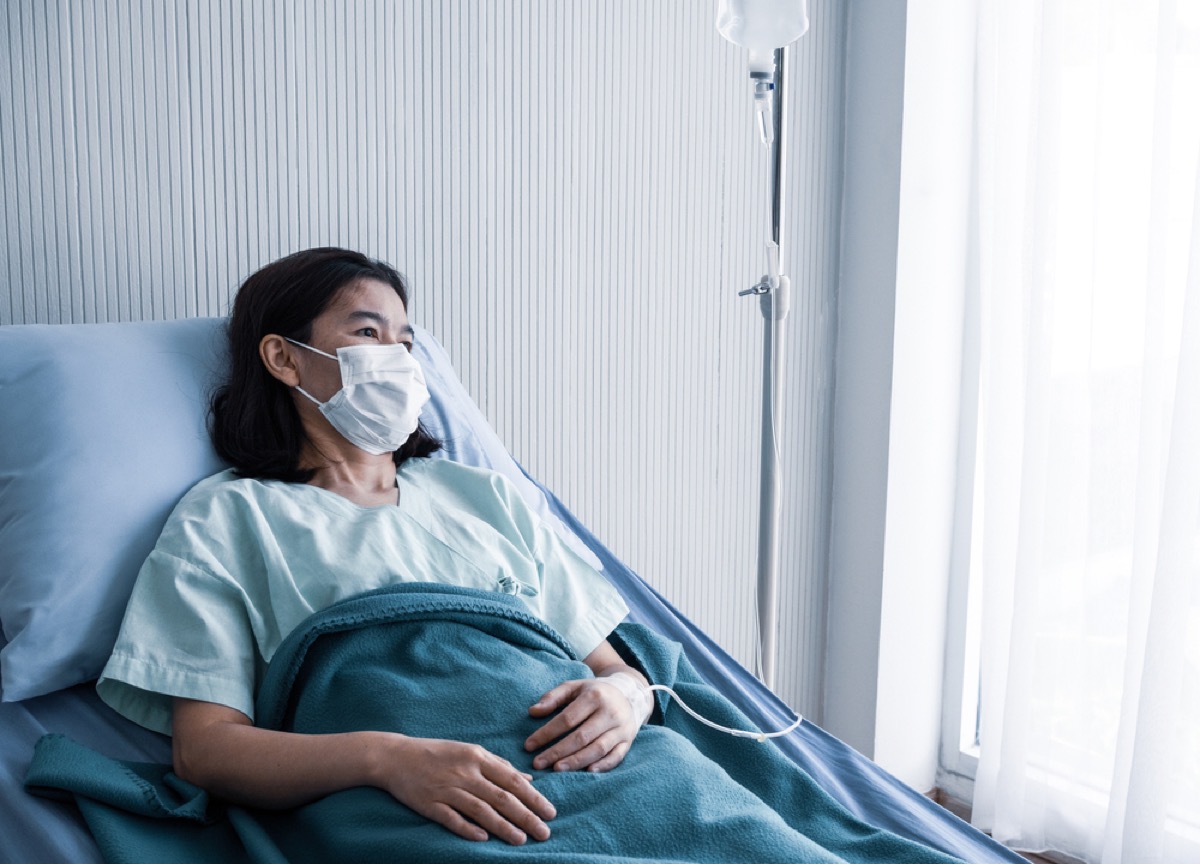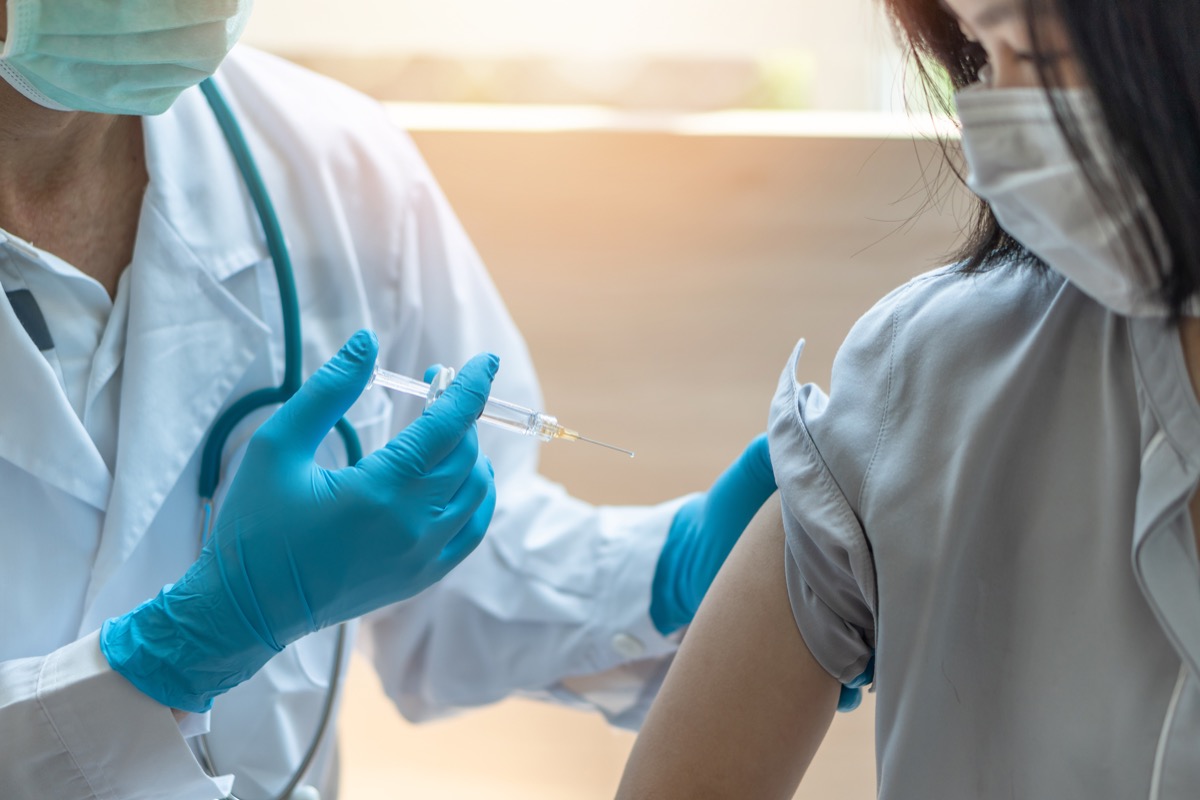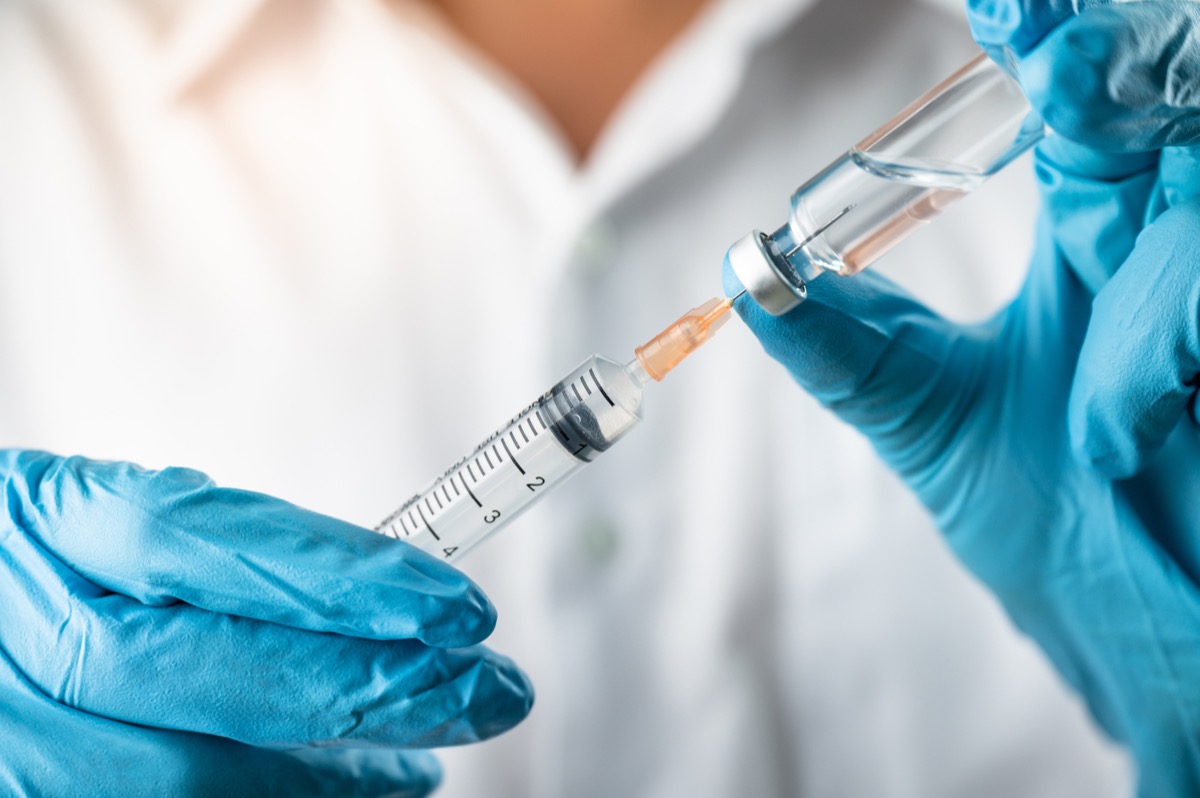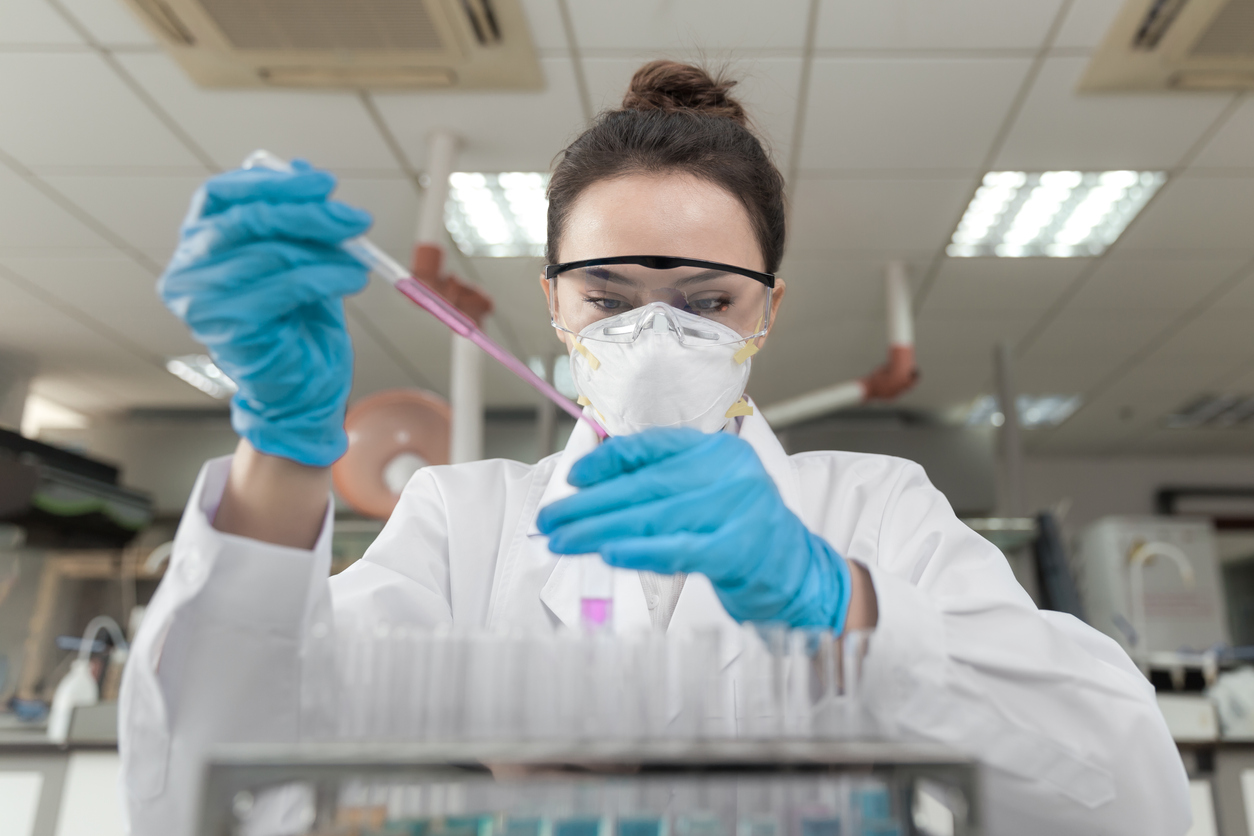As reported by Reuters, NHS medical director Stephen Powis said in a statement, “As is common with new vaccines, the MHRA [Britain’s Medicines and Healthcare Products Regulatory Agency] have advised on a precautionary basis that people with a significant history of allergic reactions do not receive this vaccination, after two people with a history of significant allergic reactions responded adversely yesterday.” Read on to find out more about the warning, and for other potential complications to be aware of, Dr. Fauci Says You Should Expect These COVID Vaccine Side Effects. Wondering if you need to skip the COVID vaccine? Per Reuters, the MHRA sent out new guidance to healthcare professionals that advised, “Any person with a history of a significant allergic reaction to a vaccine, medicine or food (such as previous history of anaphylactoid reaction or those who have been advised to carry an adrenaline autoinjector) should not receive the Pfizer BioNtech vaccine.” And for more on the coronavirus vaccine, This Is What Happens If You Only Get One Dose of the COVID Vaccine. After experiencing anaphylactic reactions as a result of the vaccine, the two frontline workers are “recovering well,” Powis said. According to Express & Star, the NHS workers have a significant history of allergic reactions and carried adrenaline auto-injectors with them. And for more up-to-date information, sign up for our daily newsletter. Although the vaccine went through multiple clinical trials in the U.K., Pfizer said that people with a history of severe allergic reactions to vaccines or the ingredients in the Pfizer vaccine were excluded from their late-stage trials, Reuters reported. And for more on the limitations of immunization, The COVID Vaccine May Not Protect You From This One Thing, Experts Warn.ae0fcc31ae342fd3a1346ebb1f342fcb As Reuters reports, the MHRA said they are looking deeper into these allergic reactions, and Pfizer and BioNTech are supporting the investigation. “Last evening, we were looking at two case reports of allergic reactions. We know from the very extensive clinical trials that this wasn’t a feature,” MHRA Chief Executive June Raine told lawmakers. And for more on the vaccine’s efficacy, The COVID Vaccine Will Protect You for at Least This Long, Study Finds. Americans monitoring the news from the U.K. may now be feeling more anxious about the COVID vaccine. But on Dec. 8, the U.S. Food and Drug Administration (FDA) released documents that said only 0.63 percent of people in the vaccine trial group reported a possible allergic reaction to the vaccine, per Reuters. And for insight from the nation’s leading infectious disease expert, Dr. Fauci Just Apologized for Saying This About the COVID Vaccine.




